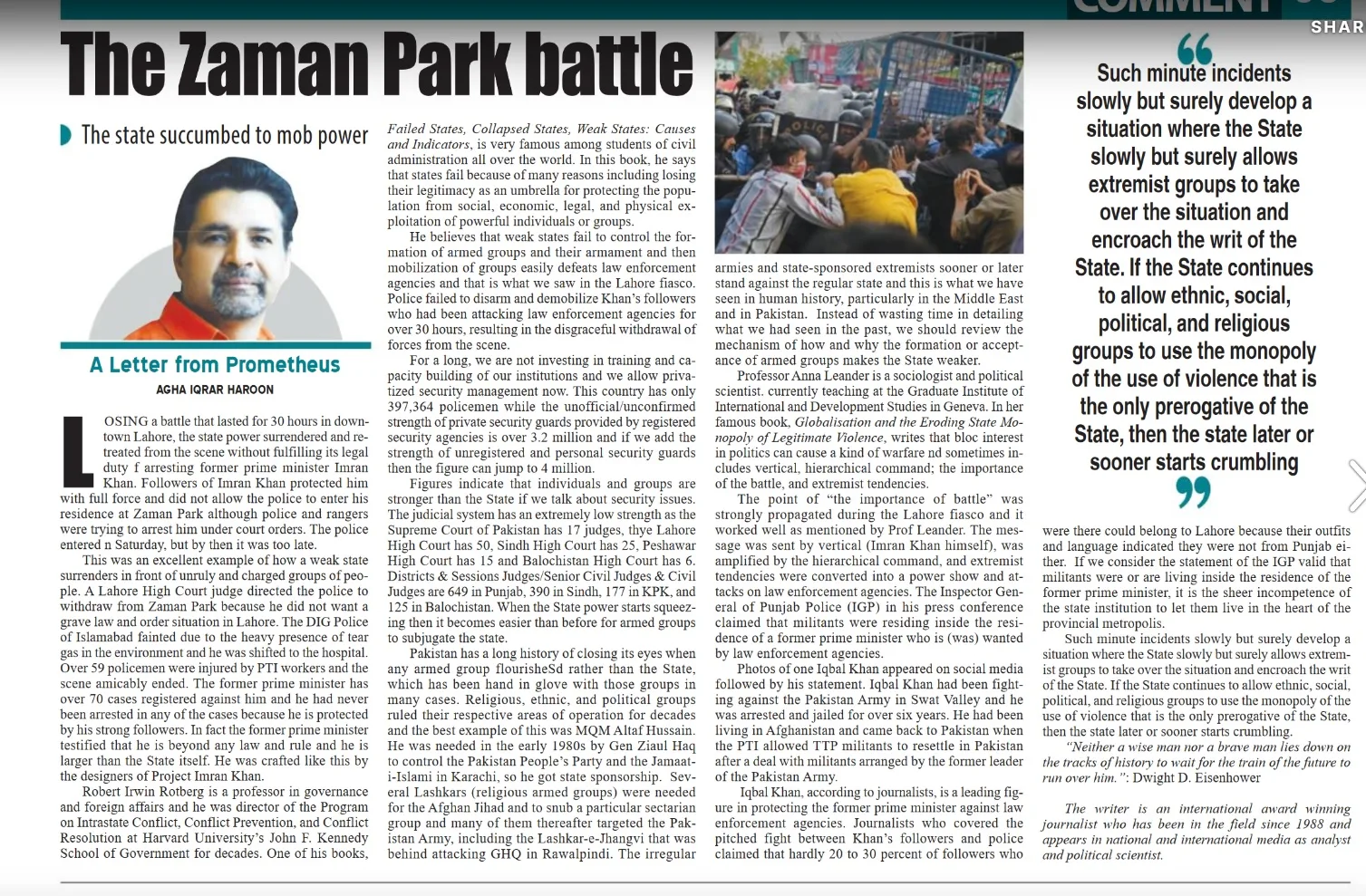Monitoring Desk: “Robert Irwin Rotberg is a professor in governance and foreign affairs and he was director of the Program on Intrastate Conflict, Conflict Prevention, and Conflict Resolution at Harvard University’s John F. Kennedy School of Government for decades. One of his books “Failed States, Collapsed States, Weak States: Causes and Indicators” is very famous among students of civil administration all over the world. In this book, he says that states fail because of many reasons including losing their legitimacy as an umbrella for protecting the population from social, economic, legal, and physical exploitation of powerful individuals or groups. He believes that weak states fail to control the formation of armed groups and their armament and then mobilization of groups easily defeats law enforcement agencies and that is what we saw in the Lahore fiasco. Police failed to disarm and demobilize Khan’s followers who had been attacking law enforcement agencies for over 30 hours, resulting in the disgraceful withdrawal of forces from the scene”.
This was written by senior journalist and political scientist Agha Iqrar Haroon in his article “The Zaman Park battle” published on March 20, 2023, by Daily Pakistan Today”.
The writer claims that Pakistan had a long history of closing its eyes when any armed group flourished rather than the State having been handed in gloves in many cases. Religious, ethnic, and political groups ruled their respective areas of operation for decades and the best example of this was MQM Altaf Hussain. He was needed in the early 80s by Gen Ziaul Haq to control Pakistan People’s Party and Jamaat-i-Islami in Karachi so he got state sponsorship. Several Lashkars (religious armed groups) were needed for Afghan Jihad and to snub a particular sectarian group and many of them thereafter targeted Pakistan Army including Lashkar-e-Jhangvi that was behind attacking GHQ in Rawalpindi. The irregular armies and state-sponsored extremists later or sooner stand against the stable state and this is what we had seen in human history, particularly in the Middle East and in Pakistan.

